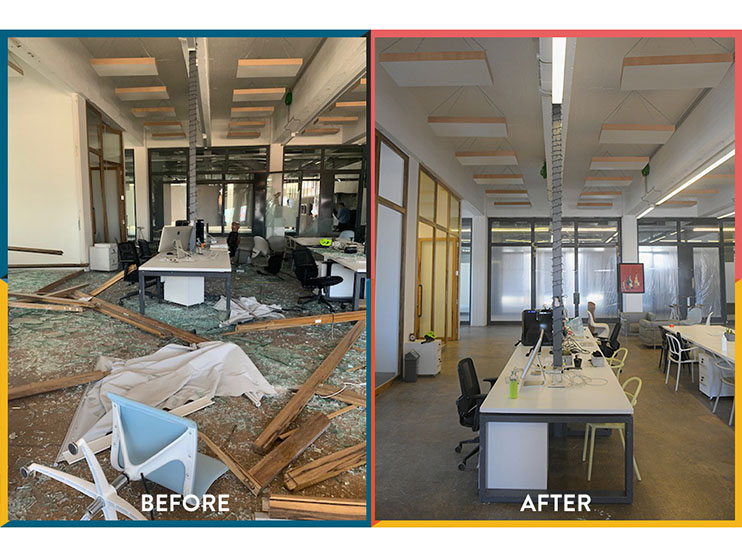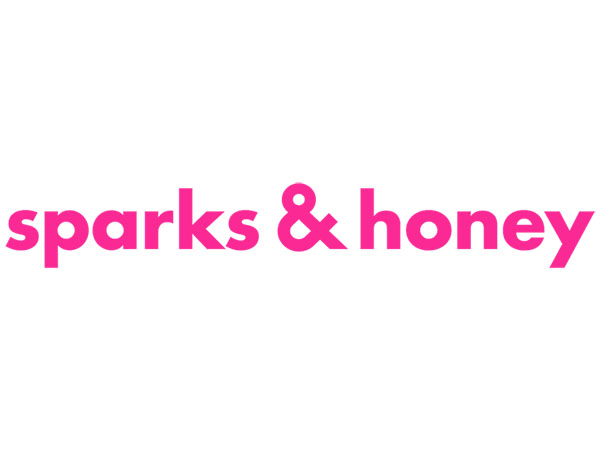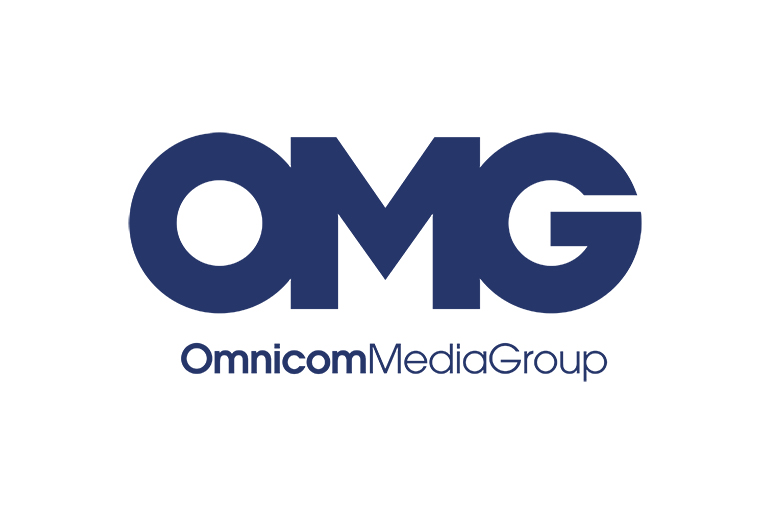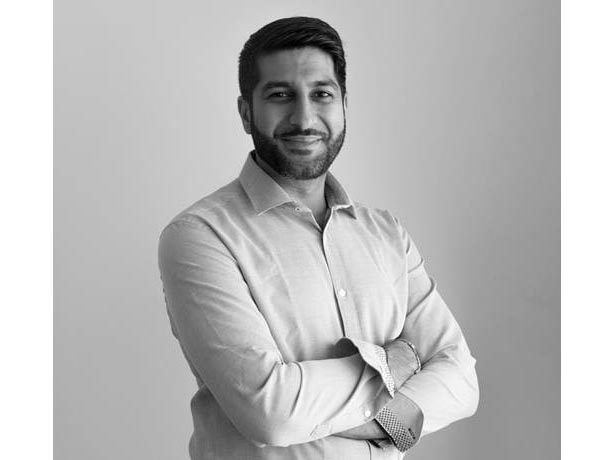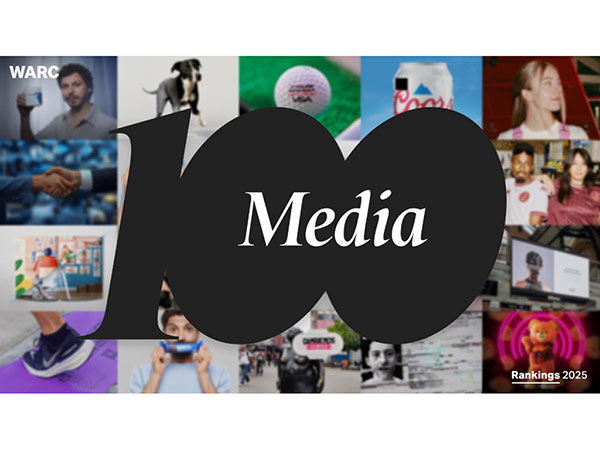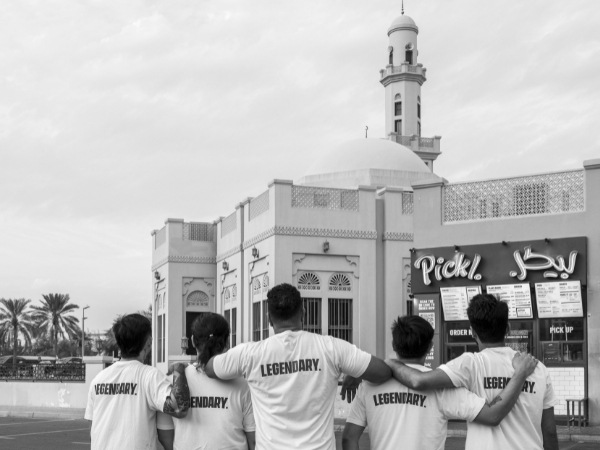News - Advertising
Lebanon Ad Land: Shattered Dreams and Broken Hearts
by Iain Akerman
November 11, 2020

At roughly 5.53pm on August 4, Moe Minkara and the team at marketing communications agency Mink left their office overlooking the Port of Beirut. It was the first time since the agency had moved to Saifi that they left work before 6pm.
Everyone knows what happened next. At 6.08pm, an estimated 2,750 tonnes of ammonium nitrate stored in the port’s hangar 12 exploded, causing at least 200 deaths, 6,500 injuries, and displacing more than 300,000 people.
“There are no words that can properly describe my reaction to the explosion,” says Minkara, Mink’s founder and creative director. “As anyone would, when the explosion took place all I could do at the time was gather up the strength to rush to my family. I honestly didn’t think about the office until later that evening when I saw our office building on the news. It was at that point that I realised that Mink got badly hurt. I tried reaching that night with no luck. The very next morning at dawn, I saw the damage first hand and it has haunted me since.”
Not everyone got out in time. At M&C Saatchi, 31 employees were still at the agency’s offices in Sursock Street at the time of the explosion. Of those, 26 were injured, some of them seriously, including HR manager Rania Feghaly and Shermine Hraoui, the agency’s business development director. Ten guests were also wounded. At the other end of Sursock Street, three members of Spirit were caught in the explosion, one of whom was badly injured and is still recovering.
In Armenia Street, 20 employees of Omnicom Media Group (OMG) had not yet left the AYA Tower. Five of them were injured and a further four wounded at home. Of the seven people who remained at the offices of Leo Burnett in Achrafieh, four were injured, including Youssef Naaman, chief operating officer of Publicis Communications Levant. “I don’t want to imagine what would have happened if we were not operating from home due to Covid-19,” says Nada Abisaleh, managing director of Leo Burnett Beirut.
At D-Beirut, all of the building’s tenants, including Hopscotch, had agreed to work from home the night before the explosion thanks to Covid-19 disinfection work. A decision that in all likelihood saved their lives. “Glass, concrete, wood, heavy steel doors, expensive art pieces and designer furniture, all gone,” says Omar Nasreddine, the agency’s chief executive and managing partner. “We even had large shards of glass pierce the concrete and become wedged half-way through the walls.”
Walid Kanaan, chief creative officer at TBWA\Raad, who was on a conference call at home overlooking Beirut at the time of the explosion, began checking on his staff and their families in the immediate aftermath of the blast. None had been at their offices at the entrance to Gemmayze Street, nor had the employees of Interesting Times, Joe Fish or Stro’berry Advertising been at work, thanks to Covid-19 and a policy of working from home. Yet some employees, including those of Publicis Media, Impact BBDO and TBWA\Raad, were injured in their place of residence.
As the scale of the disaster unfolded, it became clear that the most affected agencies were those located in Mar Mikhael, Gemmayze and Achrafieh (three of the closest areas to the port aside from Karantina and Downtown), while homes and businesses up to 10 kilometres from the epicentre were either destroyed or badly damaged.
“When I was walking up the stairs the day after the explosion, I remember thinking to myself that maybe it’s just some broken glass here and there,” says Rami Traboulsi, founder and creative director at Joe Fish. “Once I reached the door, which was broken in half and open all the way, I saw our once beautiful offices destroyed, grey, gloomy and sad. Our beautiful offices were gone. It felt like a shattered dream.”
A similar feeling swept over the staff of Mink, who returned to their office on Pasteur Street the day after the explosion, despite being told to stay at home. “With tears and disbelief in their eyes they dug through the rubble in search of their personal belongings,” says Minkara. “But mainly they all showed up to say goodbye. And even though all of us are filled with gratitude that we were not there at 6.08pm, we are also drenched in guilt that others were. Friends, neighbours, clients, the guardian of the building that we considered part of us. They were all there and they were all affected.”
Minkara salvaged what he could from the wreckage, including the agency’s server, which had been saved by a set of bulky bookcases, and immediately began working from his apartment. “That office meant everything to me personally as I built it from scratch. When I first started Mink, we would set our laptops on the floor next to a portable mobile router, and that is honestly how Mink started. As months passed by, we grew, and our office grew with us. We added desk by desk and piece by piece. Ninety per cent of my crew at Mink have been with me since the beginning and this office was as special to them as it was to me.”
For the worst affected agencies, the cost of reconstruction has the potential to be crippling. According to the World Bank, the estimated cost of recovery could be more than $8 billion for Beirut as a whole, with Lebanon needing $2.2 billion for the first phase of reconstruction. Money that Lebanon simply doesn’t have.
“This is bigger than anything ever before,” says Faten Attar, the founder and CEO of Stro’berry, who was driving past the main branch of Byblos Bank in Achrafieh at the time of the explosion. “You realise that your country is not offering you any help, any plan, any support and you have to do it all over again. I have lived through the civil war, assassinations, car bombs, but this was different. It is devastation on such a wide scale and it hit us so badly. We have all been somehow affected. Every Lebanese has a family member, friend, or acquaintance who died or was severely injured; homes were destroyed and businesses lost.”
At Leo Burnett, one floor of the agency’s offices in the Sofil Centre was “completely devastated” and three others were severely damaged, says Abisaleh, whose reaction to the explosion was one of rage, sadness and disbelief. “What happened was devastating on all levels: humanly, economically, emotionally,” she says. “What happened after the blast – or rather did not happen – was even more infuriating. The absence of the state, their lack of compassion and support, their incompetence, and their indifference is something that I will never be able to process, forget or forgive.”
Even prior to the explosion Lebanon was teetering on the edge of financial ruin. The economy was on the brink of collapse, demonstrations had swept the country, and one of the world’s most heavily indebted nations faced disaster. Not since the end of the civil war has the economic outlook appeared so bleak. Restaurants have been shuttered, hotel occupancy has crashed, and companies face a wearying struggle for survival as poverty and unemployment rates rise.
The port explosion has only intensified this suffering. For the advertising community, that has meant ruinous cuts to marketing budgets, the loss of business (particularly in the F&B, automotive and luxury sectors), and a potentially debilitating brain drain. To which must now be added reconstruction costs, possible relocation, and the loss (temporary or otherwise) of staff through injury or emotional distress.
“We cannot deny that the impact of the blast, coming after a particularly straining year on all levels, was extremely hard on many of the Lebanese,” adds Abisaleh. “Some of our agency people lost relatives and friends, some lost their homes. Because life is stronger than death, because we are Lebanese, we will bounce back. Some of us found work therapeutic. Others will take a little bit of time to adjust and resume work normally. We have been extremely supportive of our people. The network and Publicis Groupe were instrumental as well in our recovery.”
The ability of agencies to rebuild has been largely dependent on their international affiliations. Those lucky enough to be part of a global network have been supported both financially and emotionally. “Let me be frank, we’re lucky we’re a network,” admits Emile Atallah, managing director of FP7 McCann Levant. “The management’s willingness to keep Beirut afloat and ready to service the region is paramount for the survival of the agency. They’ve made sure we’re all functioning at full speed and are focused enough to do it.”
The same applies to TBWA\Raad, to whom Troy Ruhanen, the president and CEO of TBWA\Worldwide, sent a message of solidarity and support to Ramzi and Reda Raad (chairman and CEO respectively) and the entire team in Lebanon.
“Being part of a global network has its advantages,” says Kanaan. “After the explosion our TBWA colleagues from around the world reached out immediately, calling in and sending messages of support and solidarity. They’ve also initiated an aid fund for the agency in Beirut and for the employees whose homes got damaged by the blast. We were truly blessed by their kindness and generosity and by the amazing instant support we got from Ramzi and Reda.”
Others are less lucky. Mink’s workplace is beyond repair and Spirit’s office remains an open space with broken chairs, tables, computers and a few light bulbs. Joe Fish, situated on the border of Gemmayze and Mar Mikhael, has been forced to vacate the high-ceiled Lebanese house it has called home for the past five years. Even Stro’berry, which suffered only moderate damage (shattered glass, broken doors, mangled furniture and equipment), is finding it difficult to rebuild.
“I don’t think it will be easy to recover,” admits Attar. “The office is being fixed slowly and gradually. Being an owner of a company, having employees and responsibilities towards the people, you have to stand strong. You can’t fall. Not now, when they need you. There is strength and heartwarming solidarity among those coming together to pull Beirut out of the ashes. I thought to myself, ‘I can’t make it’, but somehow you find strength. Seeing crowds of young and old offering to help in any way they can restores your faith and hope and gives you power to keep going. Somehow you start all over again.”
It was groups of young volunteers that helped Spirit clear its offices of debris, enabling a few employees to work from a tiny area that had escaped major damage. Yet the agency still hasn’t decided how and where to rebuild. “We are still not able to stand up,” admits Maya Saab Haddad, Spirit’s managing and creative director, simply. “We are standing still.”
Unsurprisingly, a number of agencies have decided to seek opportunities elsewhere. Amongst them is Mink, which has opened an office in Dubai and is currently scouting for a new creative space in Beirut. Spirit, too, is “trying to open a door outside the country” while servicing its clients in Lebanon. Others, demoralised by the economic, social and physical catastrophe that has struck the country, have shut up shop for good and headed to the Gulf or Europe.
“Expanding abroad is the only chance for growth for our industry in Lebanon,” says Minkara. “Our main resource is talent, and if you can’t ensure your team’s financial security and happiness you simply cannot operate a healthy agency. With the continuous deterioration of our financial situation, we need to be resourceful and find creative solutions to keep the staff happy and their creativity flowing, despite all the catastrophic hurdles that have been thrown at us.”
Even for those who can rebuild, the process of reconstruction is challenging. M&C Saatchi estimates it will take two years and millions of dollars to rebuild Quantum House, an 18th century landmark and one of only five buildings in the country where Tuscan and Ottoman design intersected. Others are faced with a shortage of construction workers or are hampered by an inability to find the correct contractors at the right price. Greed is also playing a part, says Choucrallah Abou Samra, managing director of OMG, with some companies exploiting the situation for financial gain.
At the time of writing, OMG was a week or so away from returning to its offices in Mar Mikhael, with some sections fully refurnished and others still in need of work. “Our team is young and resilient and determined to overcome this calamity,” says Abou Samra. “A lot of them volunteered in the clean-up and reconstruction of not only the OMG offices but the neighbourhood as well. Some even pulled in family members to volunteer. Nothing will dampen our spirit and we will continue to believe, invest and grow despite all the hurdles thrown our way.”
Abou Samra’s optimism is not shared by all. Morale remains low in many agencies and there is a “sorrow for a country and a people that is hard to heal”, says Nasreddine, whose team was on site clearing debris and rebuilding less than 24 hours after the blast. There is also an acknowledgment that the Lebanese are traumatised, as well as an understanding that recovery will take time. Time that many Lebanese simply don’t have, says Atallah, whose agency suffered two injuries at its office in Sodeco.
“Let’s be honest,” says Traboulsi. “Our issue in Lebanon is much bigger than a discussion of the state of the advertising industry in the country. It’s a political, sectarian, financial and even a ‘right to exist’ discussion that has been dragging on for the past three-plus decades.”
What positives there are, such as TBWA\Raad’s investment in its new offices and a long-term commitment to grow its talent pool, are overshadowed by the darkness on the horizon. The International Monetary Fund predicts the country’s real GDP will fall by 12 per cent this year, and the economy is expected to contract by 20.7 per cent, according to the Economist Intelligence Unit. The country also remains politically deadlocked.
“In Lebanon, we are running on hope,” admits Attar. “You wake up one day wanting to leave and the next day you wake up full of hope, persistence and passion. You remember that the people you love are all here, that we’ve been through similar circumstances and we survived together, and you push yourself every single day to create a positive atmosphere for those around you. The silver lining is the fire burning in our hearts now more than ever. Our will to survive, to succeed, to make this country a better place for those who will come after us, and realising that it’s up to us and us alone to achieve this.”


